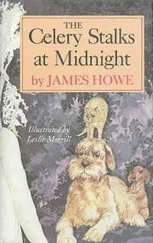Although I was still young, Mendoza became openly hostile towards me. ‘If there was any good in this boy, his family there wouldn’t have abandoned him,’ he said.
My mother held her tongue and he continued: ‘If he was older, we could make use of him.’
My mother was in the first months of pregnancy by Alberto at that time. When she had her son Adrian I was about three and a half. My mother decided to move into Alberto’s house, whereas previously she had stayed there only four months a year, when Alberto was on leave in the Philippines. She visited our house every now and then to ask after me and give Mendoza some money, and once a week to clean Inang Choleng’s house.
My mother hadn’t settled there long before she started thinking about going abroad again because her financial needs had increased. When Adrian was six months old she went off to work in Bahrain, leaving me and my brother in the care of Aunt Aida for three years.
It can’t have been anything but poverty that persuaded her to leave her children with Aida, who always had bloodshot eyes from smoking too much marijuana.
In a letter she wrote to Aida one year after she left, my mother said:
How are you, my crazy sister?
And how are the kids?
A few hours ago I sent you my whole salary. Please make sure that none of it goes to my father and that it’s shared out to José and Adrian and you and Merla. I’ll try to save some money to help Pedro with his new building project.
Alberto called me a few days ago and told me he would be back in a few weeks. Please clean his house before he comes back and don’t forget to take Adrian to him every day because, as you know, Alberto doesn’t like to visit our house because father harasses him and is always pressing him with demands for money. I don’t want to lose this man, even if all men are bastards.
Tell José I miss him very much and I’m working in a country close to his father’s country. I wish I could swim across the sea to meet Rashid or find out what happened to him, so that I could feel confident about José’s future.
I’m well. Bahrain isn’t like Kuwait when it comes to the standard of living. Although the family I work for is well off, some people are poor. Simple people.
Bahrainis do all kinds of work. They wash cars, work as porters in hotels and sell stuff in shops. Even the woman I work for very often shares the housework with me. I like the people very much.
The people are kind. Tell José that. Kindness seems to be the most obvious feature of the poor. The poverty here is not like the poverty we have but, even for people who are relatively better off, it’s still poverty.
Josephine
March 1993
Aida told me that my mother loved me and missed me very much.
I don’t remember that. I was five years old. But definitely she did.
Did she kiss Adrian? Did Adrian feel my mother’s kiss through Aida’s lips?
If only your letter had come earlier, Mother.
* * *
That year Uncle Pedro finished building his new house on Mendoza’s land and bought a used car. He had found work driving trucks for various companies, paid by the day. The great advantage for me was that for the first time in years I had my own room in the house, after Uncle Pedro left. A room that encapsulated my life in the Philippines. It was a small room with blue walls, a bed, a ceiling fan and a window that looked out on the window of my grandfather’s little house next door. The distance between the two windows was no more than two metres and the watercourse ran through the gap below. Along the banks thin stalks of bamboo grew. There was nothing to disturb my peace of mind when I was in my room, except for Grandfather’s nocturnal ravings under the influence of tuba , which I could hear through his window, or his constant calls of ‘José!!!’ during the day.
10
I was five years old and Adrian had started walking a few months earlier. He was in the middle of his second year. I looked after my little brother if Aida was busy. I didn’t look after him in the full sense: all I did was keep an eye on him and stop him going outside or into the kitchen. He was chubby and very pretty, with small eyes and a flat nose squashed between his plump cheeks. ‘That’s what legitimate children look like,’ Mendoza told Aida.
One night Aida asked me to look after Adrian while she went off to help Uncle Pedro sort out his new house. Merla was asleep upstairs. I was alone with him in the little sitting room. All I remember of what happened are some disjointed images that Aida pieced together for me when I was older. She explained to me the implications of one image that still flickers indistinctly in my memory.
It’s dark and raining heavily. Thunder and lightning. Aunt Aida, in the rain, shouting, ‘Adrian! Adrian!’ Uncle Pedro’s children moving around outside. Men and women carrying flashlights, searching Grandfather’s land. Uncle Pedro running between the trees shouting, ‘Adrian! Adrian!’ Their clothes soaked and sticking to their bodies. The rain lashing down. The beams of the flashlights. Straight lines criss-crossing and never resting on one spot. All I remember are the voices and the images frozen by the sudden flashes of lightning.
‘Here, here,’ shouted Pedro’s wife. Then Merla screamed and Aunt Aida wailed. All the flashlights pointed to one spot. Everyone running to somewhere between our house and my grandfather’s house. I followed them. Pedro jumped into the watercourse, picked up something and put it on the bank between the bamboo stalks, which were leaning over because of the rainwater. A flash of lightning lit up the scene. Everyone dispersed, with shock on their faces. People made the sign of the cross. Uncle Pedro holding Adrian’s face in both hands. It was dark blue. There was a thick black liquid running from his mouth and nose. Uncle Pedro pressed the boy’s chest and kept pressing, locking his fingers, pushing down on Adrian’s chest. Hitting, hitting. He pressed his lips to the lips of my little brother and blew. Then he burst into tears.
* * *
We should be able to forget the mistakes we make in childhood, but if the victim of your mistake is still there, right in front of your eyes, and grows up with you, and the effects of the mistake still show, then how can you forget?
I often make excuses for myself. I say I was just a child that didn’t understand, that I couldn’t be held responsible, that it wasn’t my fault.
The excuses are persuasive, but if you try to convince both your head and your heart at the same time, one of them refuses to believe.
I borrow my mother’s saying: ‘Everything happens for a reason, and for some purpose.’ Resorting to faith, by its very nature, requires faith.
But what if the faith is all a pretence?
With the passage of time everything new becomes old. But Adrian’s face seems new whenever I see it.
He sits in front of me in his favourite corner, his mouth open, drooling constantly, reminding me of something I want to forget: a crippling sense of guilt about a mistake I can’t even remember happening.
‘Aida, isn’t there any way to cure him?’ I ask my aunt.
She gives her usual answer: ‘No. That’s what they told us in the hospital, after the incident, years ago.’
Although she’s told me to my face dozens of times over the years what the doctor said, I still ask. ‘What did the doctor say?’
I hear the same answer as always. ‘It’s because the oxygen didn’t get to his brain. Damage to the cells.’
I’m always deeply disappointed, as if I expect a different answer every time I ask.
After nearly drowning, Adrian was in a coma for weeks. After that he gradually regained weight and recovered his health.
Читать дальше












